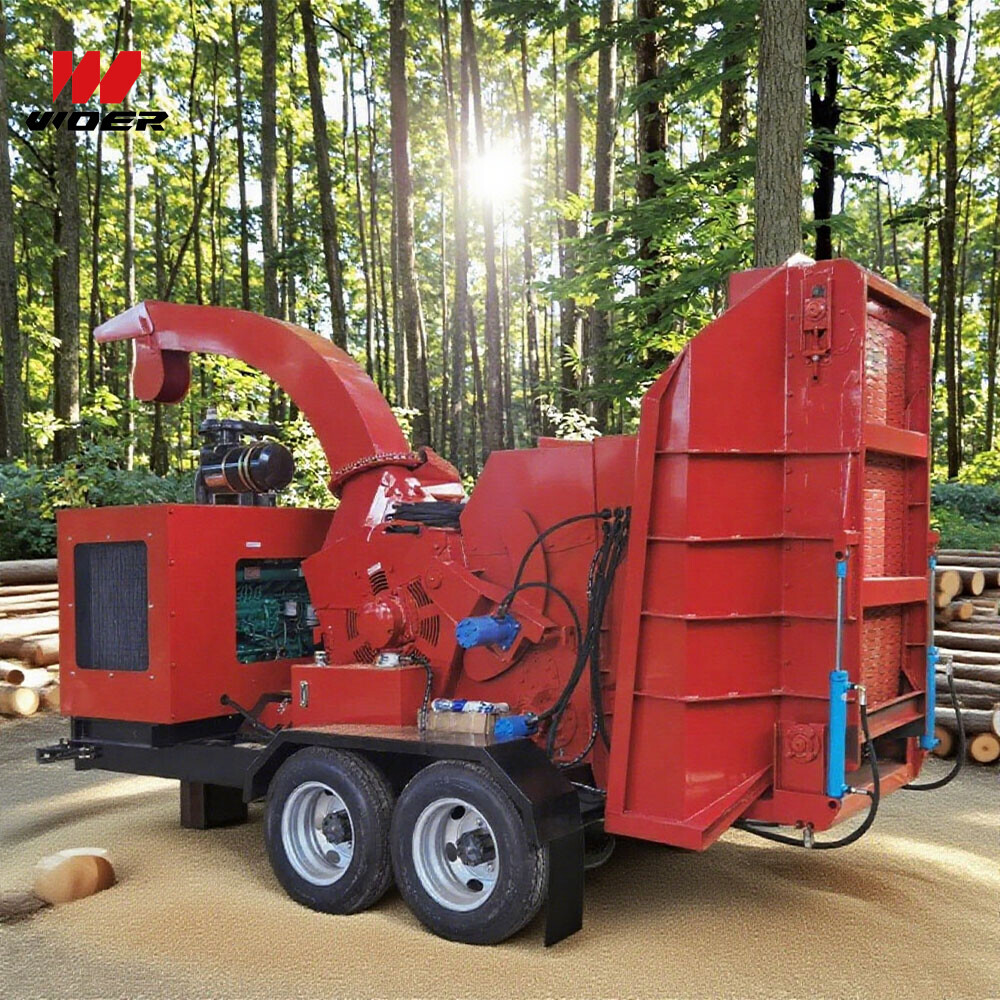Navigation
Contact us
Phone
Message

Why Hydraulic Wood Chippers Dominate Industrial Forestry
Modern forestry operations demand equipment that balances power with efficiency. Hydraulic wood chippers, such as the wood chipper 6130 series, utilize pressurized fluid systems to deliver 30-50% more torque than traditional mechanical drives. This translates to consistent performance when processing hardwoods or dense materials where standard chippers might stall. The hydraulic system also enables variable speed control, allowing operators to adjust feed rates based on material density – a critical feature for operations handling mixed wood types.
Technical Superiority of Hydraulic Drive Systems
Unlike belt-driven alternatives, hydraulic wood chippers maintain peak torque throughout the RPM range. The closed-loop hydraulic circuit in industrial-grade models recirculates oil at pressures up to 3,000 PSI, powering the chipper drum while simultaneously operating self-feed mechanisms. This dual functionality makes them ideal for continuous processing in lumber yards or municipal tree services.
Comparing Drum vs. Disc Chipper Configurations
Self-Feed Technology for Operational Efficiency
The latest self feed wood chipper models incorporate infrared sensors and hydraulic rollers that automatically adjust feed pressure based on branch diameter. This reduces operator fatigue while increasing throughput by 20-35% compared to manual feed systems. For high-volume operations processing over 10 tons/hour, this automation pays for itself within 6-8 months through labor savings alone.
Industry Applications and ROI Analysis
Municipal tree services report 40% faster cleanup times when using heavy duty wood chipper machine units with 150+ HP engines. The biomass industry particularly benefits from drum-style chippers producing consistently sized chips for pellet production. A case study from a Canadian forestry company showed a 28% reduction in processing costs after upgrading to hydraulic chippers with knife reversal systems that double blade life.
Key Purchasing Considerations
- Engine Power: 25-30 HP per inch of throat capacity
- Feed System: Hydraulic rollers vs. gravity-fed
- Mobility: PTO-driven for tractors vs. standalone diesel
- Safety: ANSI B175.4 compliance for discharge controls
- Maintenance: Quick-change knife systems reduce downtime
Emerging Trends in Wood Chipper Technology
Leading manufacturers now integrate IoT sensors into forestry machinery wood chipper units, providing real-time data on engine load, knife wear, and production rates. Some advanced models even feature automated sharpening systems that maintain optimal cutting geometry between operator shifts. The market is also seeing growth in hybrid electric-diesel chippers that reduce fuel costs by 30% in stationary applications.
Common Operational Mistakes to Avoid
Improper knife alignment causes 60% of premature wear in drum wood chipper machine units. Operators should:
- Check knife protrusion weekly using manufacturer gauges
- Balance feed rates to maintain 80-90% engine load
- Never process frozen wood without checking knife hardness ratings
Why Choose Professional-Grade Hydraulic Chippers?
For operations processing over 5 tons daily, industrial wood chipper machines deliver measurable advantages:
- 30-50% longer component life than consumer-grade units
- Ability to handle contaminated wood (nails, wire) without damage
- Factory support for replacement parts and technical guidance
Explore our selection of wood chippers for sale featuring the latest hydraulic innovations. Contact our forestry equipment specialists for a customized productivity analysis matching your specific material types and volume requirements.

This stunning beach house property is a true oasis, nestled in a serene coastal community with direct access to the beach.
Contact
West Street, Melbourne Victoria 3000 Australia